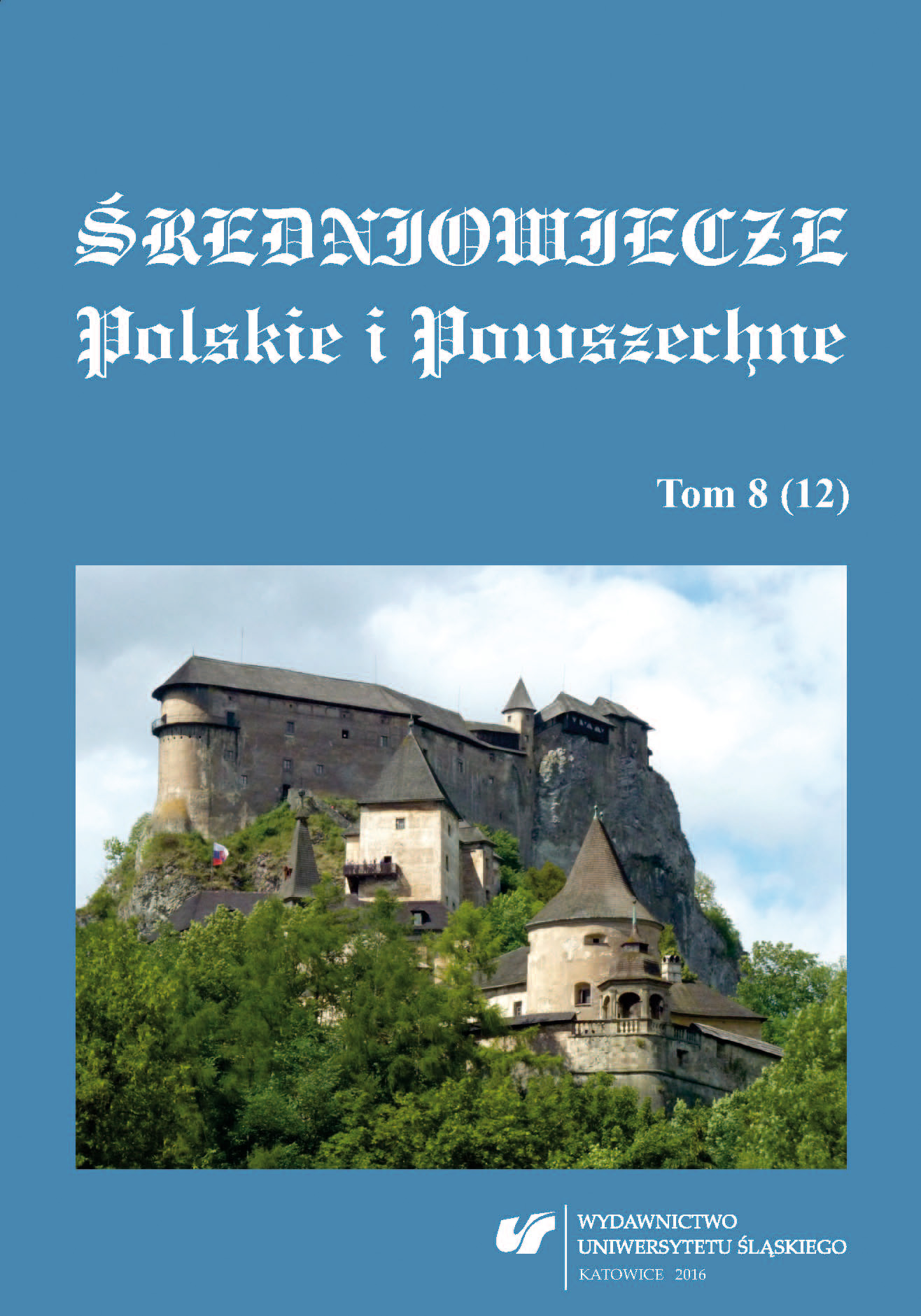Kilka uwag o powołaniu księcia Władysława Opolskiego na tron krakowski w 1273 roku
A Few Remarks about the Attempts of Władysław of Opole to Obtain the Throne of Cracow in 1273
Author(s): Karolina SupernakSubject(s): History, Political history, Middle Ages, 13th to 14th Centuries
Published by: Wydawnictwo Uniwersytetu Śląskiego
Summary/Abstract: The attempt at overthrowing Bolesław V the Chaste as the High Duke of Poland and appointing Władysław of Opole to the throne of Cracow in 1273 has remained a contentious matter of discussion among historians. The article, therefore, aims at revisiting the underlying causes of the revolt and the reasons for the nobility’s support of Władysław. Moreover, the author attempts to analyze the theories regarding the supporters and opponents of Bolesław V the Chaste. In the past, the prevailing theory behind the reasons for the revolt focused exclusively on Bolesław’s foreign policy. According to that theory, the nobles were dissatisfied with Bolesław’s support for his father‑in‑law, Bela IV, with regard to the conflict between Bohemia and Hungary that concerned the Babenberg legacy. However, there is little proof to support that hypothesis as one of the reasons for the revolt against Bolesław. Similarly, the fact that Leszek the Black was designated as Bolesław’s heir to the throne of Cracow should not be treated as a cause of the revolt. On the other hand, the theory that the revolt was caused by Bolesław’s domestic policies has been thus far disregarded for the most part. Nonetheless, there existed multiple potential sources for conflict and civil unrest, such as Bolesław’s policy on salt and his attempts at removing hitherto powerful families (Gryfici, Odrowążowie) from any significant positions of power. It is, thus, possible to enumerate several incentives for treason among the representatives of the two families. At the same time, it should be mentioned that the efforts to dethrone Bolesław should not be equaled with unanimous solidarity among the noble families. Among those involved in the revolt, it is easier to name those who remained loyal to rightful ruler; on the other hand, those who supported Władysław of Opole are more difficult to identify. However, it should be mentioned that the Topór family did most probably not lead the revolt, and the role of the Bishop of Cracow, Paweł of Przemanków also remains unclear.
Journal: Średniowiecze Polskie i Powszechne
- Issue Year: 2016
- Issue No: 12
- Page Range: 132-166
- Page Count: 35
- Language: Polish

